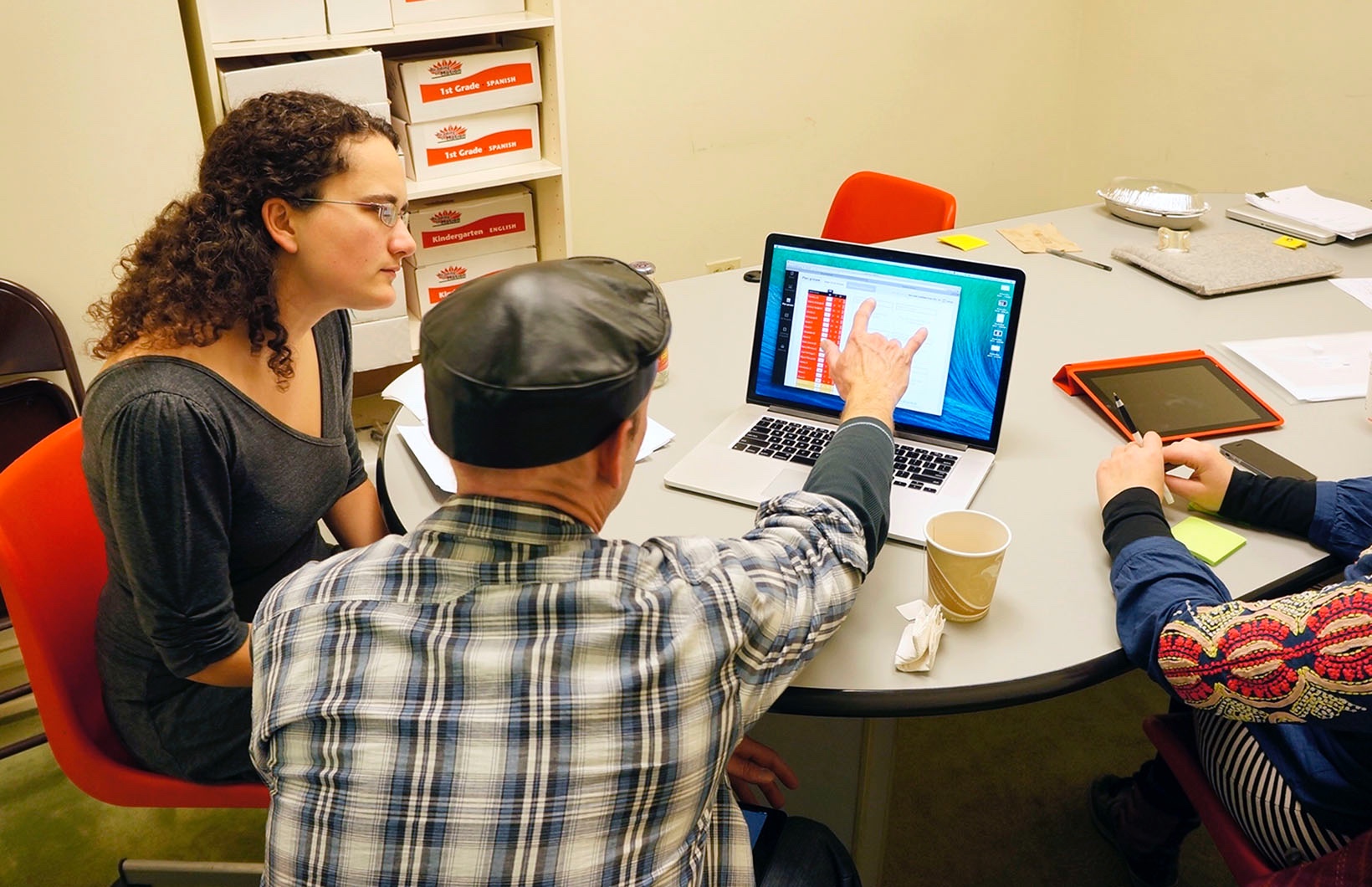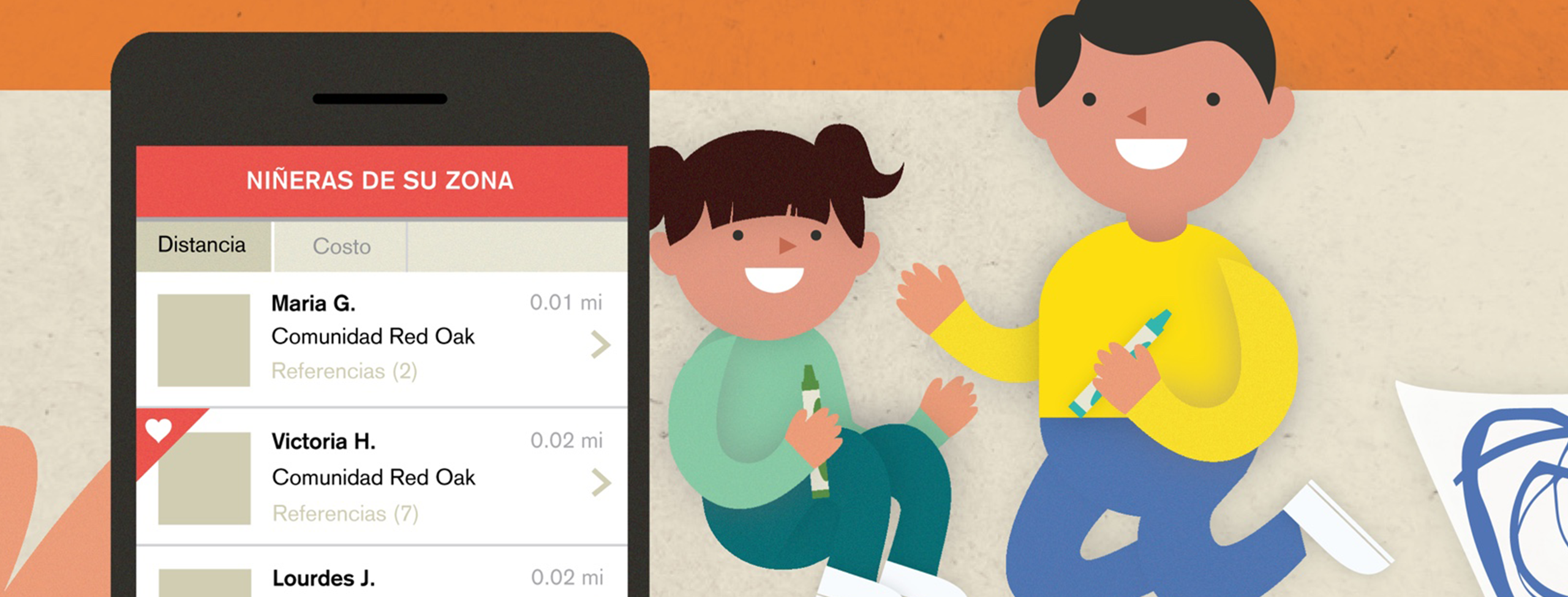
Client
The Donnell-Kay Foundation (DK) aims to improve public education in Colorado through research, policy, creative dialogue, and critical thinking.
Geography
Colorado
Topic Areas
Education
Youth Development
Project Types
Programs & Services
Public Policy
Today’s education system is not designed with the learner in mind. Because of this, many families “opt out” of preschool, instead relying on a loose network of family, friends and neighbors (FFN) to look after young children.
The Donnell-Kay Foundation (DK) worked with us to engage these families, understand the strengths and realities of FFN care, and ultimately create and prototype a new vision for early learning.
Project Outputs
Strategies
Our research presentation clarified goals for creating a new system for Colorado’s early learners. It identified four areas of opportunity—learning, progress, convenience and motivation—with corresponding stories and insights for each.

Tools
We created a visually-engaging book—in both English and Spanish—of ten concepts to increase learning in informal childcare. DK used the book to rally support for these potentially game-changing innovations. View the book in English here, and in Spanish here.

Programs One concept, originally called Learning Dollars, was identified as high-potential because it had powerful benefits for children and parents, plus implications for systemic change. The idea was to provide families with both funds and information about educational resources for young children in their area. The client team recruited seven families, hired two Learner Advocates (another concept) and created materials that effectively simulated how the program would work.
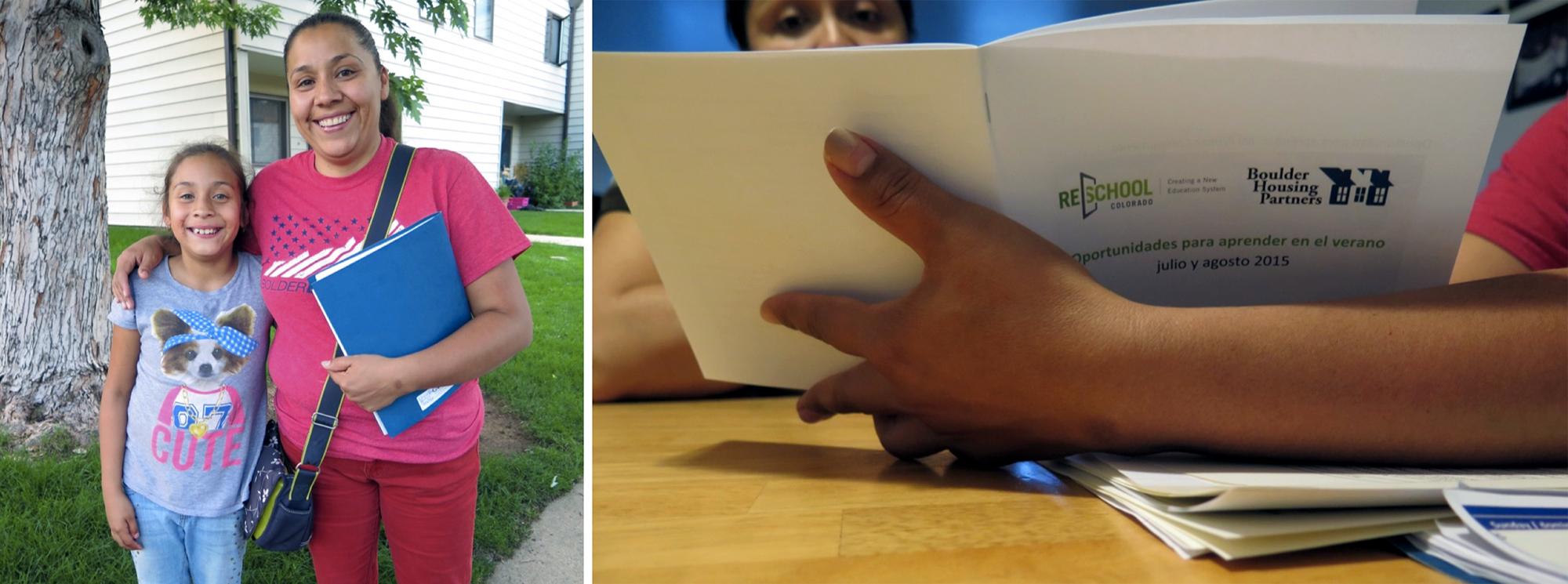
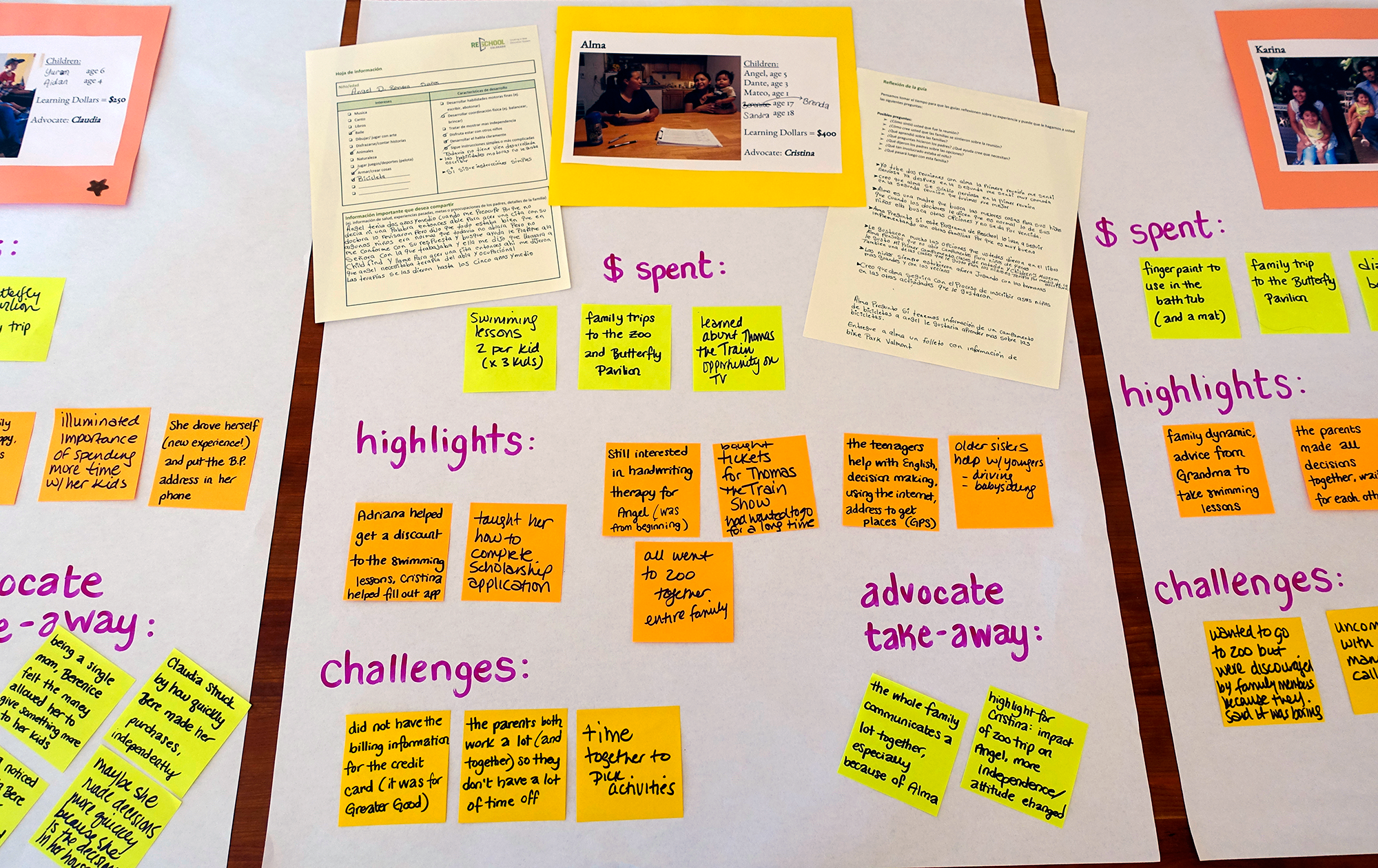

Learn more about how our prototype impacted families in this article.
Learning Experiences
We coached the DK and BHP teams for 14 weeks as they prototyped the “learning dollars” program. We mapped out a prototyping plan to align the broader team, and our biweekly coaching sessions provided guidance and structure.

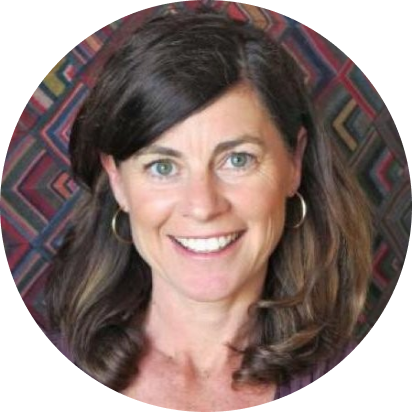
This work taught us the power of human-centered design to not only engage people, but empower them.
Colleen Broderick
Client & Community Outcomes
Mindsets
Our work built empathy among stakeholders for the tricky balance parents face every day, as well as a new sense of what’s possible. Managing Director Amy Anderson said, “What we are learning is that we don’t necessarily need to wait for a new education system in order to see change. Just the process of user-centered design has already started to shift mindsets and practices, resulting in a ReSchooling spark that will only grow in future years as these ideas gel and become more systematic.”
Behaviors
The Learning Dollars prototype provided each family with a debit card, with $200 for the first child plus $50 for each additional child. The prototype reached a total of 19 children, who collectively accessed 41 experiences, including swimming lessons, soccer camp, trips to the aquarium, zoo and Butterfly Pavilion, and the purchase of school supplies, backpacks, bicycles and a homework table. These things were always available, yet many parents weren’t accessing them because they were not aware of available discounts, transportation options and the option to stay with your child (many parents feared leaving their children in the care of a stranger).
In 2021, Learning Dollars is being brought to the ballot box with Proposition 119, which proposes a tax on recreational marijuana to fund out of school learning programs. This move is a culmination of ReSchool’s work on Learning Dollars over 8 years.
Conditions
ReSchool began in 2013 as an initiative of the Donnell-Kay Foundation, but in 2018 ReSchool became its own independent non-profit organization. Our human-centered design work has inspired their current initiatives, including the Learner Advocate Network and the Out of School Landscape. These initiatives are part of a new system of education, designed with today’s learners in mind.
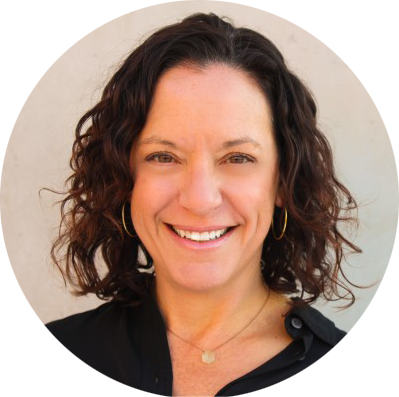
I’m eternally grateful for this initial engagement with you; it set us on this path. It changed how I do my work, it shaped how we do everything at ReSchool.
Amy Anderson







